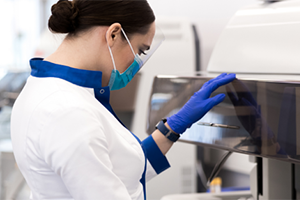After months of hesitating to request sales of Zantac and its generic ranitidine equivalents to stop, the Food and Drug Administration (FDA) finally released a statement in April of 2020 requesting that the medication no longer be sold or taken. It determined that many ranitidine products have the potential to contain dangerous levels of nitrosodimethylamine (NDMA), a substance that’s closely tied to causing cancer. What’s particularly alarming about the FDA’s findings is the agency’s determination that NDMA can increase in ranitidine products as they’re stored on the shelf.
The FDA’s announcement came after a private lab first raised concerns about the drug in September 2019. In the months following this alarm, multiple sellers and producers halted their sale or distribution of ranitidine. However, many companies kept their products on the market until as recently as February of 2020.
Ranitidine’s Use & Function
Zantac was first sold by GlaxoSmithKline in 1983. It was created to treat issues related to the overproduction of stomach acid. By 1988, Zantac was the bestselling drug in the United States. After the patent expired for Zantac in 1997, dozens of generic ranitidine products flooded the market. By 2004, over-the-counter versions of ranitidine were approved for sale by the FDA.
Ranitidine treats health problems such as the following:
- Heartburn
- Acid indigestion
- Ulcers
- Gastrointestinal esophageal reflux disease (GERD)
- Zollinger-Ellison syndrome
- Erosive esophagitis
Ranitidine is effective at treating medical issues related to stomach acid because it blocks histamine, a compound that the body uses to regulate physiological functions. Specifically, ranitidine blocks histamine that triggers the production of stomach acid. So, ranitidine doesn’t just treat the overproduction of stomach acid, it prevents it from happening altogether.
Why Is the Presence of NDMA In Ranitidine Such a Problem?
As mentioned above, the FDA expressed concerns that concentrations of the carcinogen NDMA can increase the longer a ranitidine product is stored. According to the FDA, NDMA has been “found to increase significantly in samples stored at higher temperatures, including temperatures the product may be exposed to during distribution and handling by consumers.”
In 2018, a global recall of blood pressure medications was triggered by the discovery of NDMA impurities in them. Currently, the FDA is not certain if NDMA impurities impact all brands and forms of ranitidine products. If the problem is as widespread as early tests suggest, it might mean that the second “$1 billion drug” in pharmaceutical history has been placing the health of the public at risk for decades.
If you’ve developed cancer while taking Zantac or any other form of ranitidine, fill out our online form to see if you have a claim. Our team is ready to help no matter what excuse the pharmaceutical companies will use for their failure to develop and test safe products.

